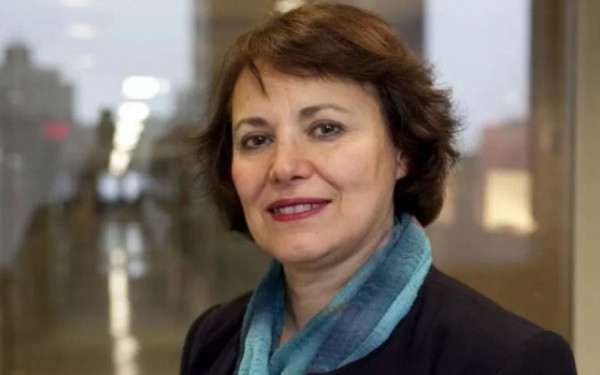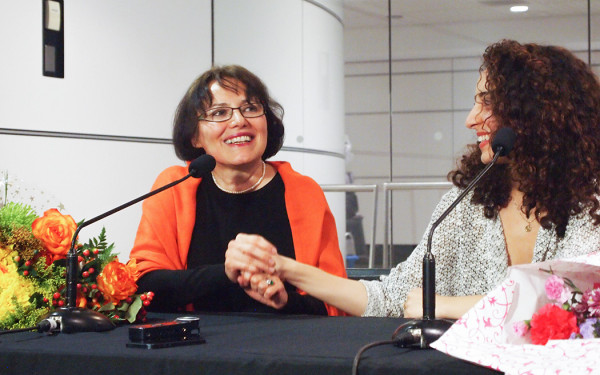Homa Hoodfar Released
Members of the Campaign to Free Homa Are ‘Overjoyed’ to Hear Homa is Free
Former Concordia professor Homa Hoodfar was released from Evin prison in Iran today, after spending over 100 days in solitary confinement.
Hoodfar is now in Muscat, Oman, as was confirmed during a press conference in Concordia’s John Molson School of Business on Monday. She is expected to return to Montreal soon.
“I can’t find the words to express the relief of my mental state and my joy,” said Marc Lafrance, a professor of sociology and anthropology at Concordia and a member of the campaign to free Hoodfar since March, when she was first ordered not to leave Iran.
Hoodfar was arrested in June under unclear charges, which were later revealed to be “dabbling in feminism” and propaganda against the state. Her work has focused on dispelling stereotypes of Muslim women, and exploring sexual diversity in Muslim contexts.
“I’ve rarely been as happy as I am today. I think I speak for all of us when I say that,” Lafrance added, referring to Marguerite Mendell, a professor at Concordia’s School of Community and Public Affairs, Kimberley Manning, the principal at the Simone de Beauvoir Institute, and Shelley Reuter, a member of the Concordia University Faculty Association.
All three joined Lafrance in front of the room, and exchanged embraces and smiles.
Hoodfar’s niece Amanda Ghahremani, the main organizer of the Free Homa Hoodfar campaign, joined her aunt in Muscat this morning. Their reunion fell on Ghahremani’s birthday, and the day she received the news that she could practice law in Ontario.
The reasons for Hoodfar’s release are unclear, but an article posted by the Islamic Republic News Agency said she was released on humanitarian grounds. Other Iranian news organizations said one of these reasons may have been her rare neurological condition.
Those presenting at the press conference expressed gratitude to the governments of Canada, Oman, Italy and Switzerland for working diplomatic channels in order to secure Hoodfar’s release.
The experience of organizing the campaign has forged lifelong friendships among the members of the Free Homa group, said Mendell, who was the first to find out Hoodfar had been freed. Upon finding out from her husband, who was crying, Mendell said she was overwhelmed with joy.
Manning said she and other staff were screaming in the Simone de Beauvoir Institute when they heard the news.
Hoodfar’s physical and psychological conditions remain unknown, although a photo of Hoodfar descending from an airplane in Muscat was released on Twitter Monday—those speaking at the press conference agreed that she looked like she had lost weight. But she was standing on her own.
“We can only imagine that the last over 100 days will have been extremely traumatic for her,” Lafrance said.
Hoodfar’s release represents a victory for academic freedom, which must be safeguarded at all costs, according to Lafrance.
“I think that academics all over the world did a really fantastic job of showing that we will not roll over.”
Reuter agreed, saying, “Homa should never have paid so much to exercise what is a right for us in this country.”
Whether Hoodfar will return to work as a Concordia graduate student supervisor depends on her state when she returns, Reuter said after the press conference.
“We’re not going to be giving her work just yet.”
Before she was arrested in June, Lafrance and Mendell had opportunities to exchange emails with her—something that was very risky at the time. Hoodfar told her colleagues that Iranian officials were holding her for interrogations that often lasted eight to nine hours.
Normally, her interrogators focused on her past research topics, like sexual diversity in Muslim contexts. Mendell said that Hoodfar focused her research on ethnographies rather than anthropology.
“[Hoodfar] was not afraid that her writings were read—she once told me, well, they’re reading all my stuff, perhaps they’ll learn something,” Mendell said.

1web_900_600_90.jpg)
2web_900_605_90.jpg)




web_600_375_90_s_c1.jpg)
